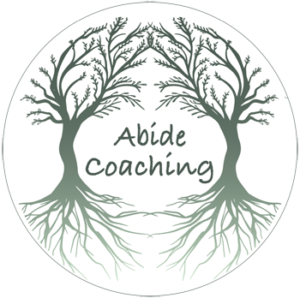Relationships can be challenging for everyone. If you throw in ND, a chronic illness, or anything extra, it can seem like it isn’t worth the effort. But relationships are always worth the effort.
Knowing how to connect with your partner is essential for a healthy relationship. Both so you can express your love and your partner knows they are loved.
Gary Chapman’s book “The 5 Love Languages,” published in 1992, discusses the five patterns he noticed in couples counseling. These patterns are:
- Words of Affirmation are expressing affection through words of praise and appreciation. When this is someone’s primary love language, they enjoy kind words, uplifting notes, encouragement, love notes, sweet texts, and compliments.
- Quality Time expresses affection with undivided attention, so if this is your partner, put away the cell phone, turn off the TV or computer, and be present with your partner. Try listening to them closely and be curious. It isn’t about what you do or how long you do it with them; it is about fully being present to them.
- Physical touch expresses affection with non-sexual touching – hand holdings, rubs and pats on the back, touches on the arm or knee, cuddling, or massages. Find out what physical touch your partner enjoys the most.
- Acts of Service expresses affection by doing things for your partner. So roll up your sleeves to do the dishes, laundry, clean a room, get an oil change, or thousands of other tasks that should your partner you got their back. People who like acts of service appreciate the 100 little things that need to be done being taken off their plate. They also tend to give acts of service, so watch out for those.
- Gift-giving expresses love through the gift received and the time and effort put into getting it. It is the thoughtfulness behind the gift that matters. It shows that they were on your mind and were listened to. If receiving gifts is how you like to be shown love, you can usually remember all the details about what you have received.
While these five love languages are great, they cover only some people’s love languages. A Twitter user that goes by @neurowonderful posted some ND love language. They became so popular that they’ve been widely adopted (and certainly appreciated) by the neurodivergent community.
Here they are:
- Infodumping is when you dump all your knowledge about a granular topic. If your partner does this, try practicing active listening.
- Body doubling/parallel play/sharing space is when you do your thing, and your partner does their thing in the same area. Some people need accountability to get their thing done, but sometimes it is nice just to have company while doing your thing. Often, having company can regulate your or your partner’s mental well-being or emotions.
- Penguin Pebbling (Gift Giving) is a way to show that you were intentionally thinking of a person by exchanging small tokens of appreciation.
- Seeking Support/Support Swapping shows up like little nudges or helpful reminders. It can also be swapping jobs – one of you hates to cook but is okay with doing the dishes. Great! No one says you have to take turns cooking or cleaning. Share with your partner what support you need and can offer.
- Deep pressure is physical touch but firmer. Not everyone likes or appreciates a light touch on the arm – they want a bear hug. Their body is craving deep pressure to ground them physically. They may also like a gift of a weighted blanket, weekly or monthly messages, or a lap dog or cat.
Often NDs use these love languages at work too. That is okay – they must trust you. If it is causing an issue, politely have a conversation to create boundaries together.
You may resonate with some of Chapman’s and some ND love languages. That is fine, but figuring out yours and finding out your love language and your partner’s will:
- Help share your love in a meaningful way
- Promote Selflessness
- Create Empathy
- Help maintain intimacy
- Aid personal growth
These aren’t going to solve every relationship issue, but they are a tool in opening up good communication, which is essential to any long-term relationship.

